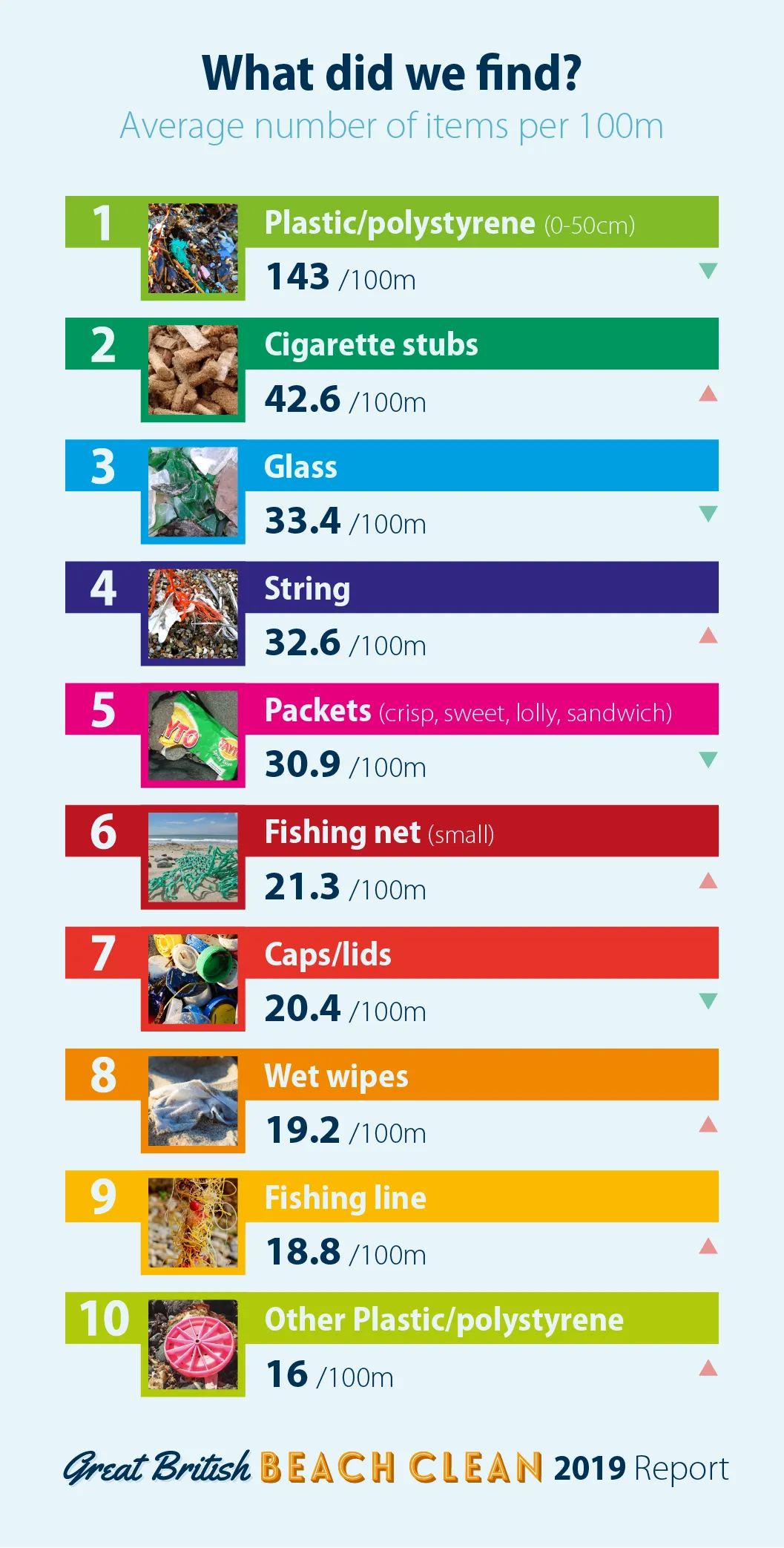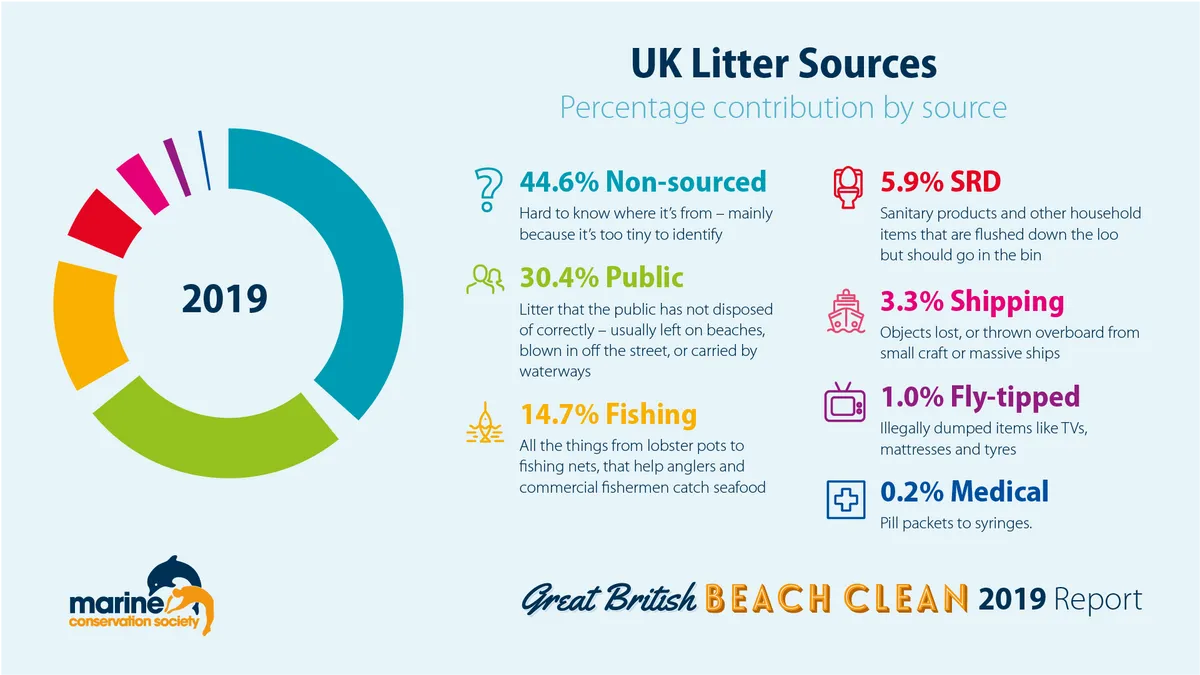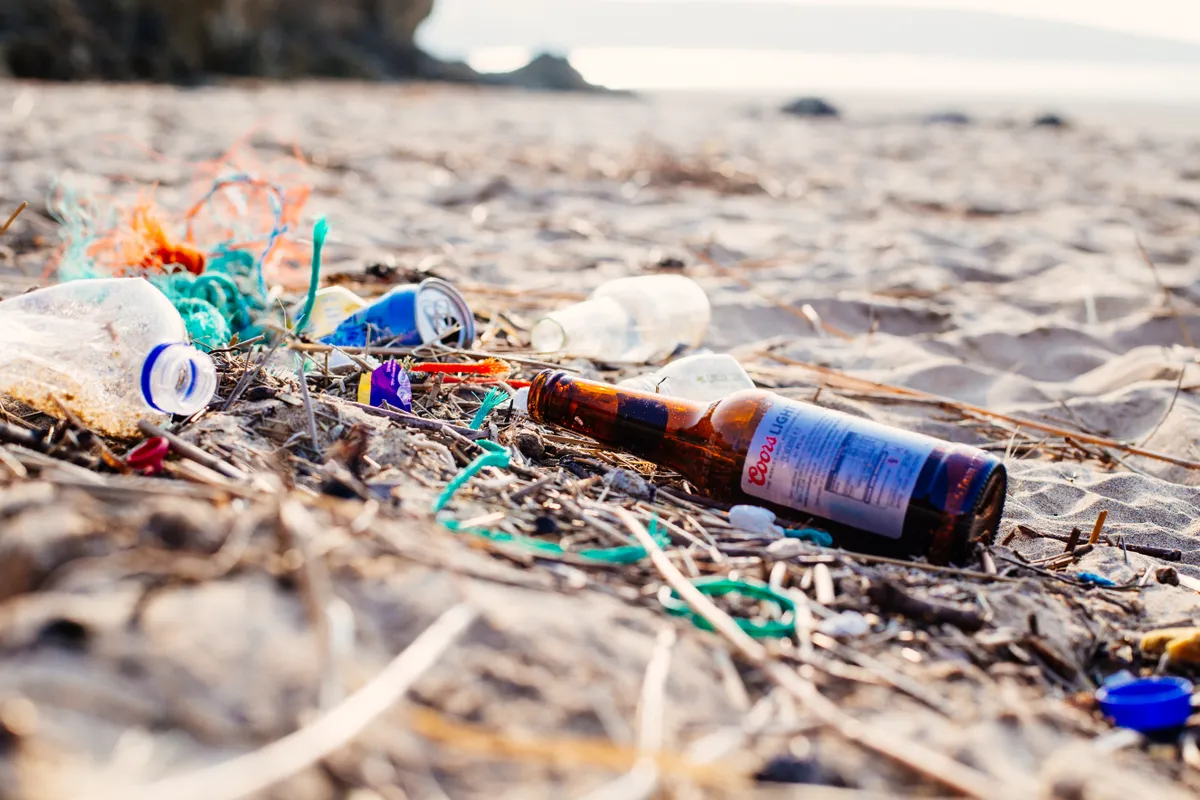Every year for the past 26 the Marine Conservation Society (MCS) has invited volunteers to become citizen scientists and not only clear Britain’s beaches of litter, but also to record what they find.
The results of this year’s clean are now in. One the positive side, the clean-up saw 437 beaches cleared of litter in a single weekend, thanks to 10,800 dedicated volunteers. However, the sheer amount of litter that was removed reveals that Britain’s love-affair with single-use plastics is far from over.
Over the weekend, which took place in September, 10,883 kg of litter was collected – almost 11 tonnes. This was made up primarily of plastic and polystyrene pieces, as well as cigarette stubs, glass items, and food packaging, at concentrations of 558 litter items per 100 metres of beach.

The survey also recorded where these litter items came from, although for much of it was hard to identify the source, as the pieces were too small to identify. These included microplastic pieces.
However, from what they could identify, much of it came from visitors to the beach leaving it there, or else blown in off the street, or carried to the beach along waterways.
The fishing industry was also found to be a major source of litter, with abandoned fishing lines, nets, and lobster pots all washing up on the shore.

Drinks containers constituted a huge proportion of the litter found, with over 16,000 of varying forms collected. The MSC says that this illustrates the urgent need for an all-inclusive deposit-return schemes (DRS), which would stem the influx of single-use plastic bottles onto our beaches, as well as glass bottles and aluminium cans, which can be just as dangerous as plastic, for animals and beach visitors alike.

“Around the world, 40 countries have DRS in place, significantly reducing litter levels and increasing recycling rates. In the meantime, a climate emergency has been declared and our data illustrates that drinks containers continue to pollute our marine environment,” says Dr Laura Foster, head of clean seas at the MSC.
The society hopes that these alarming statistics will spur more people to get involved in future clean-ups as well as illustrate the urgent need for further policies, initiatives and bans to be put in place to reduce beach litter in all forms, not just limited to plastic. These figures demonstrate that although plastic pieces are the most prolific form of litter, they are not the only culprit.
Lizzie Prior, beachwatch officer says, “Great British Beach Clean data over the last 26 years has been instrumental in pushing for policies and initiatives which have made a real change to the marine environment, including the 5p carrier bag charge. We hope that this year’s data, when compared with the state of the UK’s beaches 26 years ago, will encourage even more people to get involved in our year-round Beachwatch programme to help us gather important data and keep the UK’s beaches beautiful for generations to come.”

Main image: Litter at Crantock, Cornwall. © Natasha-Ewins
